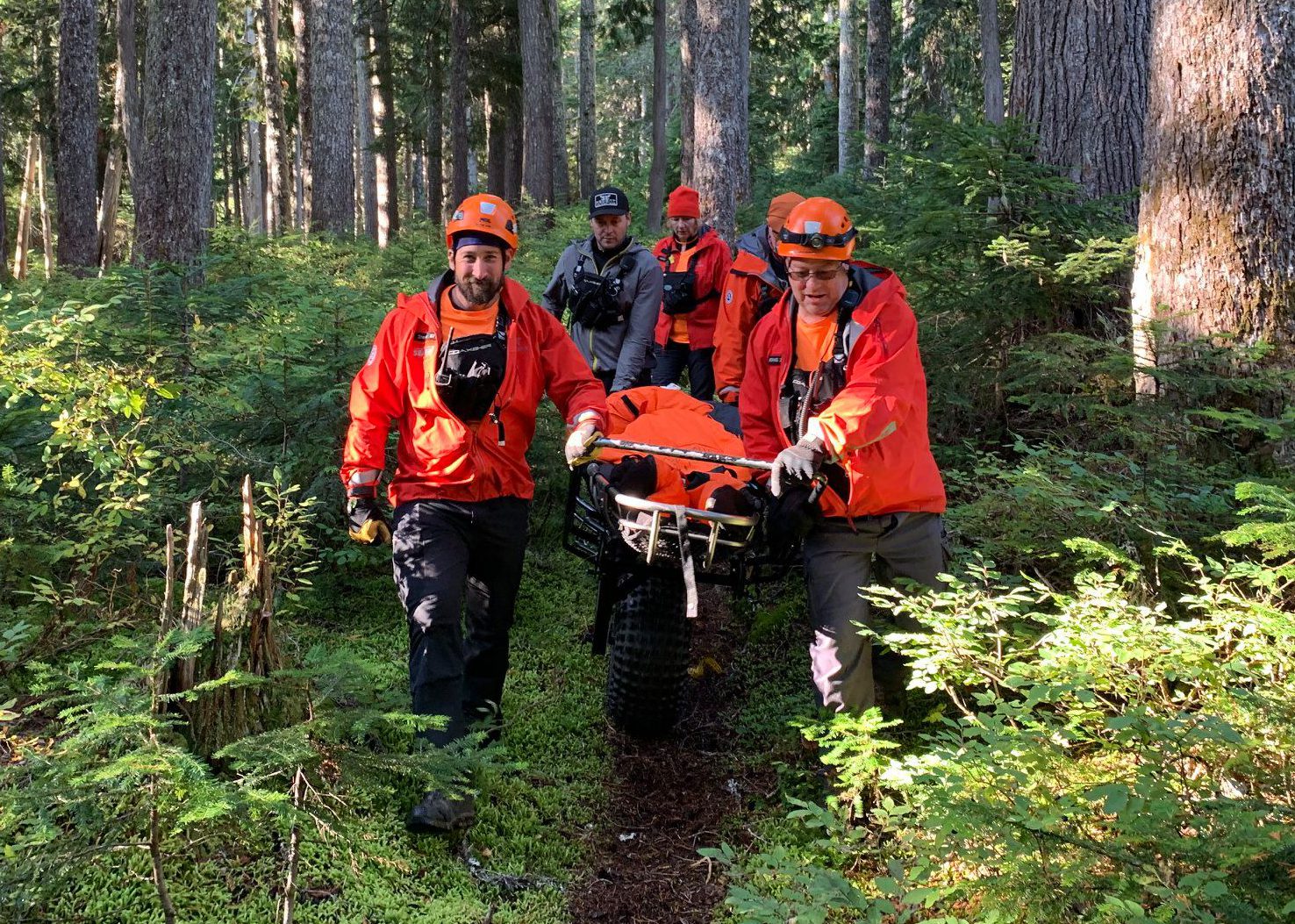Following a busy May long-weekend, the BC Search and Rescue Association is concerned about growing call volumes heading into summer and busier weekends.
According to CEO Dwight Yochim, the concern is amplified as the May long-weekend is busy but usually much less so than the August long-weekend, particularly with hikers.
“August is our busiest month by far, so it’s a bit concerning that the numbers are going up,” said Yochim.
“We’re having multiple teams talking about more than one search in one day and shoulder seasons like this are a bit concerning because hikers don’t realize that there’s still a lot of snow in the upper mountains. When you go up there in your shorts and your t-shirts in a nice warm day, you quickly get into the snow at the higher elevations.”
Over the long weekend, Comox Valley Ground Search and Rescue says they were involved in eight incidents to assist hikers and boaters in the area.
Yochim says that while they had more rescues during the pandemic, when many were seeking the outdoors as a new hobby, the trend is seeming to go back up and that is putting a lot of stress on search and rescue groups.
“We topped out about 2,100 searches the first year of the pandemic, then we dropped down to more our average around 1,600 searches,” said Yochim. “But the trend is heading up and that is concerning, we’re looking at reaching a steady 2,000 within the next 10 years of so.”
Yochim says they believe the rise is mostly due to population, and many are simply getting lost on the trails while being ill prepared, getting injured and other issues.
“So, about 50 per cent of hikers could avoid a call to search and rescue if they were better prepared,” said Yochim. “You don’t need skis or any special skills, they just put on a pair of sneakers and off they go.”
With the summer season approaching, two of the top 10 hikes with the most search and rescue call outs are on Vancouver Island. The two being the Juan de Fuca and Cape Scott trails, and Yochim adds their best guess as to why, is volume.
He stresses the importance of being well prepared, and thinking ahead in a worst-case scenario that would require search and rescue help.
“Something to ask yourself is ‘if I was to get in trouble at any point along that trail, could I survive the next eight to 10 hours by myself?’,” said Yochim. “It may take us that long to get there if it’s dark, we don’t have a helicopter and we have to hike in to you.
“Do you have a tarp to keep yourself dry and warm, do you have a flashlight if it gets dark or to signal someone?”
Yochim says having a trip plan that details when you are heading out and when you will be back for a friend is also important, and ensuring you are properly trained and built up to bigger adventures.
BCSARA adds that they do encourage you to go out into the outdoors and enjoy what they have to offer, but to do it safely and ensure you are well prepared for your adventures.






